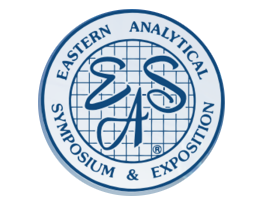One-Day Course
Sunday, Nov. 17; 8:30am – 5:00pm
Ms. Kim Huynh-Ba, Pharmalytik Consulting, Newark, DE
COURSE DESCRIPTION
Data Integrity has become the main focus in the pharmaceutical industry in the past few years, and Analytical Data is the major component of Data Management. This course is designed to provide laboratory personnel with practical insights and tools to maintain data integrity in the dynamic and regulated environment of pharmaceutical laboratories. It will focus on regulatory expectations, streamlining the documentation process, identifying critical attributes to document technical information, establishing human errors, and reducing potential documentation issues. Electronic records will also be part of the discussion. Participants should expect to share their experiences through interactive discussions and team exercises. Although this course aims toward the Pharmaceutical labs, the concepts of data integrity are also relevant to other industries.
WHO SHOULD ATTEND
This course will benefit analytical chemists, staff scientists, investigators in QC lab, managers, supervisors, directors, R&D, production, manufacturing, contract labs, quality assurance, regulatory affairs, laboratory auditors, lab inspectors, data reviewers, lab investigators. This course is not intended for microbiologists.
TOPICS
1. Data Integrity and Principles of Good Documentation Practices
a. Definition and Regulatory Landscape in Lab Operations
b. GMP requirements of records and reports
c. ICH Q10 – Data Management in Pharmaceutical Quality Systems
d. FDA’s Data Integrity and Compliance with cGMP
2. Understand Lifecycle Management of Documentation
a. Data Generation in Laboratory Settings
b. Documentation and Recording Practices
c. Data Review and Approval Process
d. Data Archival, Retrieval, and Security
e. Data Security and access controls
3. Key Elements of Laboratory Data Integrity
a. Data Accuracy and Precision
b. Reliability of Analytical Results
c. Ensuring Traceability in Lab Data
d. Presenting analytical data and managing changes
e. Handling deviations and investigations
4. Establish a Data Governance Framework
a. Impact of Instrumentation and Equipment on Data
b. Addressing Human errors in Lab Processes
c. Handling Out-of-Specifications (OOS) Results
d. Periodic Review and Revalidation
e. Managing the audit trails
f. Role of LIMS in Lab Data Integrity
g. Preparing for Audits and Inspections
h. Training and Fostering a Culture of Data Integrity

ABOUT THE INSTRUCTOR:
Kim Huynh-Ba is the Managing Director of Pharmalytik (www.pharmalytik.com) providing consulting and training, specializing in quality systems, validation, CMC, and stability sciences. She is a member of the US Pharmacopeia’s Council of Experts and the Chair of the Small Molecules Monographs 4 Expert Committee for the 2015-2025 cycle. She was the Chair of the USP Good Documentation Practices Expert Panel. Kim is a member of the Governing Board of EAS and their 2013 President. She is an adjunct professor at Temple University‐ RAQA Program and Illinois Institute of Technology teaching Pharmaceutical Analysis, Quality audit, ICH Quality Guidelines, and GMP. Kim authored over 80 technical publications and book chapters. She is the editor of the “Handbook of Stability Testing in Pharmaceutical Development: Regulations, Methodologies and Best Practices” (2008), “Pharmaceutical Stability Testing to Support Global Markets” (2010), and recently published the “Analytical Testing for the Pharmaceutical GMP Laboratory” (2022).

